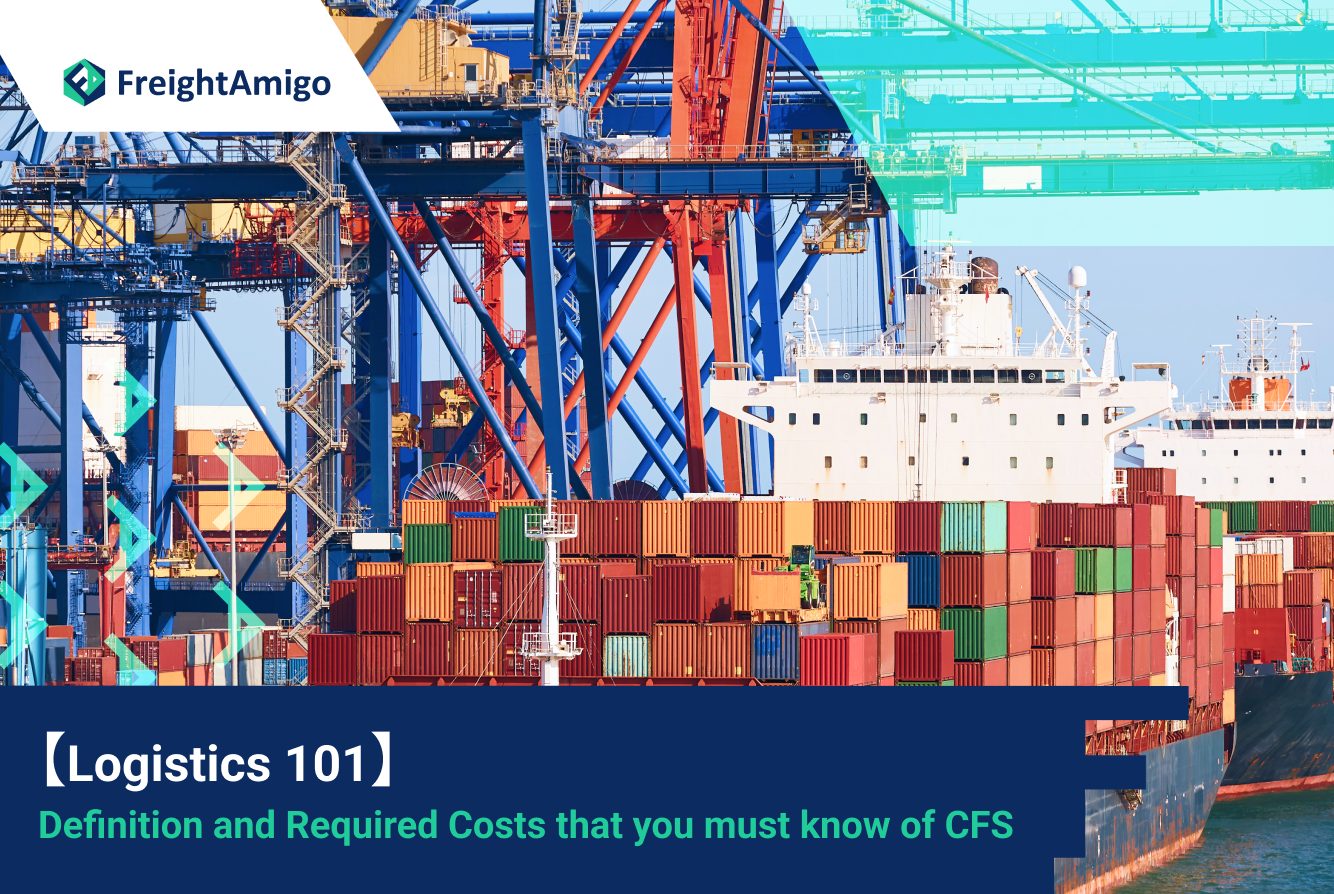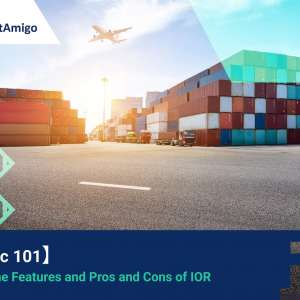Author Name:Tiffany Lee – Marketing Analyst at FreightAmigo
In international freight transportation, there are multiple options available, including the use of Container Freight Stations (CFS). A CFS is a facility that provides consolidation and deconsolidation services and is usually located near ports. CFS plays a crucial role in the global logistics industry, facilitating cross-border transportation of goods, and helping ensure efficient and timely delivery of goods. To help you decide whether using a CFS is the right choice for your logistics strategy, this article will explore the advantages and disadvantages of using a CFS.
Want to compare the best Express, Air Freight, Sea Freight, Rail Freight & Trucking rates so as to have better control on cost?
Definition of CFS
A Container Freight Station (CFS) is a facility that provides consolidation and deconsolidation services and is usually located near ports. It is used to temporarily store goods before they are loaded onto ships or transported to their final destination. At a CFS, goods can be processed, stored, and have their documents processed to facilitate the management and transportation of goods. CFS plays a crucial role in the global logistics industry, facilitating cross-border transportation of goods, and helping ensure efficient and timely delivery of goods.
Advantages
- Flexibility: Compared to full container load transportation, using a CFS allows for more flexibility in handling goods as they can be individually packed and shipped without waiting for the container to be fully loaded. This can save time and costs, especially for bulk and small quantity shipments.
- Strong adaptability: CFS can adapt to the characteristics and needs of various goods, providing various handling and storage services. This can ensure that goods are properly handled and managed to ensure safety and protection during transportation.
- Faster distribution of goods: CFS is usually located near ports so goods can be distributed faster to their respective recipients. This can reduce the transit time and make transportation faster and more efficient.
- Cost-saving: Compared to full container load transportation, using a CFS can save transportation costs, especially for bulk and small quantity shipments. Additionally, CFS can provide other services such as cargo insurance, document processing, etc., which can further reduce transportation costs.
Disadvantages
- Additional handling and storage requirements: CFS requires additional handling and storage, which may increase the cost of goods. For example, goods may need to be packaged, labeled, sorted, and stored, all of which require additional manpower and time costs.
- Longer transportation time: Using CFS may require longer transportation time since goods need to be consolidated and deconsolidated at the CFS. This may result in longer transportation time, especially for goods that require long-distance transportation.
- Increased risk of goods damage: CFS typically handles a large volume of goods, which increases the risk of goods damage. For example, goods may be damaged, lost, or stolen, which may cause losses to the shipper.
- Need for document processing: Using CFS may require document processing, such as transportation documents, insurance documents, etc. This may increase the cost and time of transporting goods.
CFS – Responsibilities of Shippers and Carriers
Container Freight Stations (CFS) are responsible for providing cargo consolidation and deconsolidation services and ensuring the safety and integrity of the cargo during transportation. However, CFS only handles and stores the cargo, and the responsibility and risk of the cargo during transportation are shared between the shipper and the carrier. Therefore, if the cargo is lost, damaged, or has other issues during transportation, the shipper and the carrier need to share the responsibility.
Shippers need to ensure that the packaging and labeling of the cargo comply with transportation requirements and provide correct documentation and permits. If the cargo is lost, damaged, or has other issues during transportation, the shipper needs to file a claim with the carrier.
Carriers need to ensure that the cargo is properly handled and managed during transportation and comply with relevant laws, regulations, and transportation agreements. If the cargo is lost, damaged, or has other issues during transportation, the carrier needs to compensate the shipper. Additionally, carriers need to provide appropriate transportation insurance to protect the safety and integrity of the cargo during transportation.
CFS – How to Calculate the Required Fees
- Container handling fee: CFS needs to handle the cargo consolidation and deconsolidation, and therefore charges a container handling fee. This fee is usually calculated based on whether the cargo is shipped in bulk or in a full container load, as well as factors such as the weight and volume of the cargo.
- Storage fee: If the cargo needs to be stored at the CFS, the CFS charges a corresponding storage fee. This fee is usually calculated based on factors such as the storage time, storage area, and storage method of the cargo.
- Document handling fee: CFS needs to handle the cargo-related documents, such as bills of lading, transportation certificates, insurance policies, etc., and therefore charges a document handling fee. This fee is usually calculated based on the number and type of documents.
- Other fees: CFS may also charge other fees, such as loading and unloading fees, insurance fees, inspection fees, etc.
The fee calculation method may vary depending on the CFS and region. Generally, shippers and carriers need to inquire about the relevant fees from the CFS based on the specific situation to determine the transportation cost of the cargo. When choosing a CFS, shippers and carriers also need to consider factors such as the CFS fees, service quality, and transportation convenience to ensure that they choose the most suitable services.
There are different options for cargo transportation. If you want to choose the most convenient and suitable solution, it is best to have the full support of logistics experts! If you are planning to ship goods overseas, please go to the FreightAmigo page for inquiries.
更多物流資訊:
【Logistics 101】Guide to the Features and Pros and Cons of IOR
【Logistics 101】Definition of Terminal Handling Charges (THC) and Its Calculation
【Logistic101】A Complete Guide to DDP and What You Should Know
===
===
If you have any inquiries on logistics/supply chain, feel free to contact FreightAmigo now:
Chat with us online OR
Phone : +852 28121686
WhatsApp: +852 27467829









































